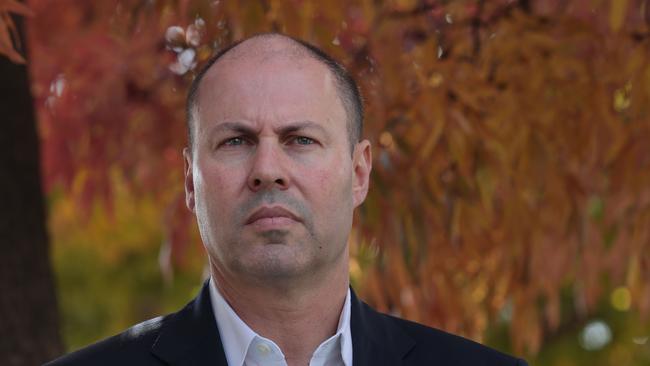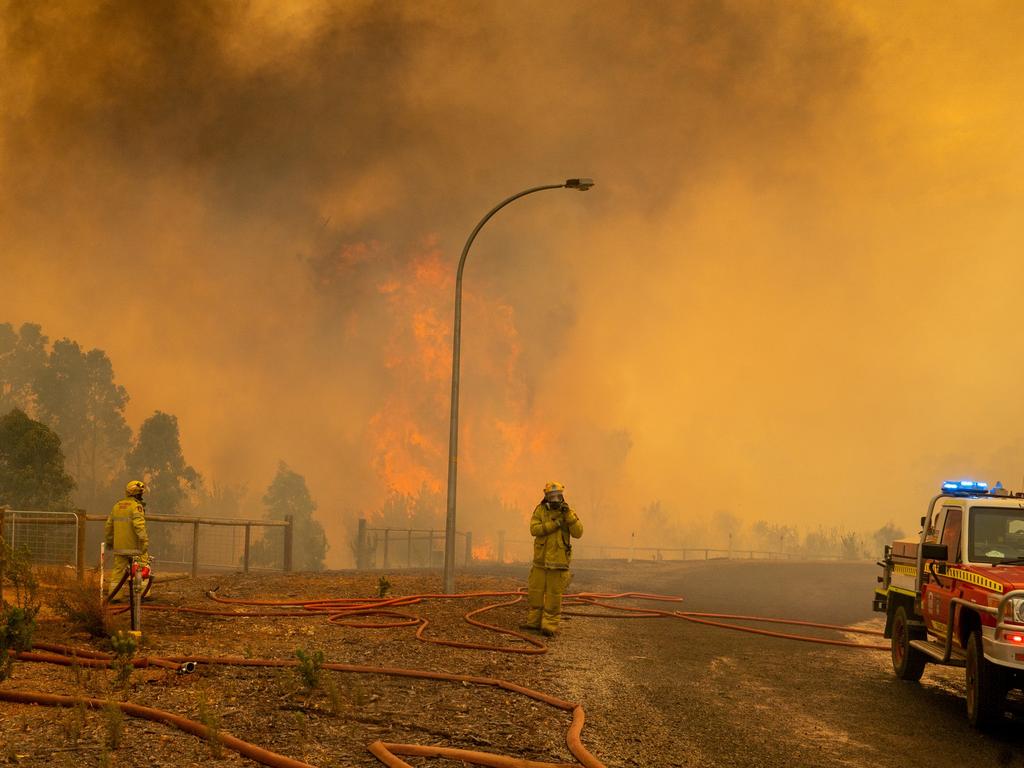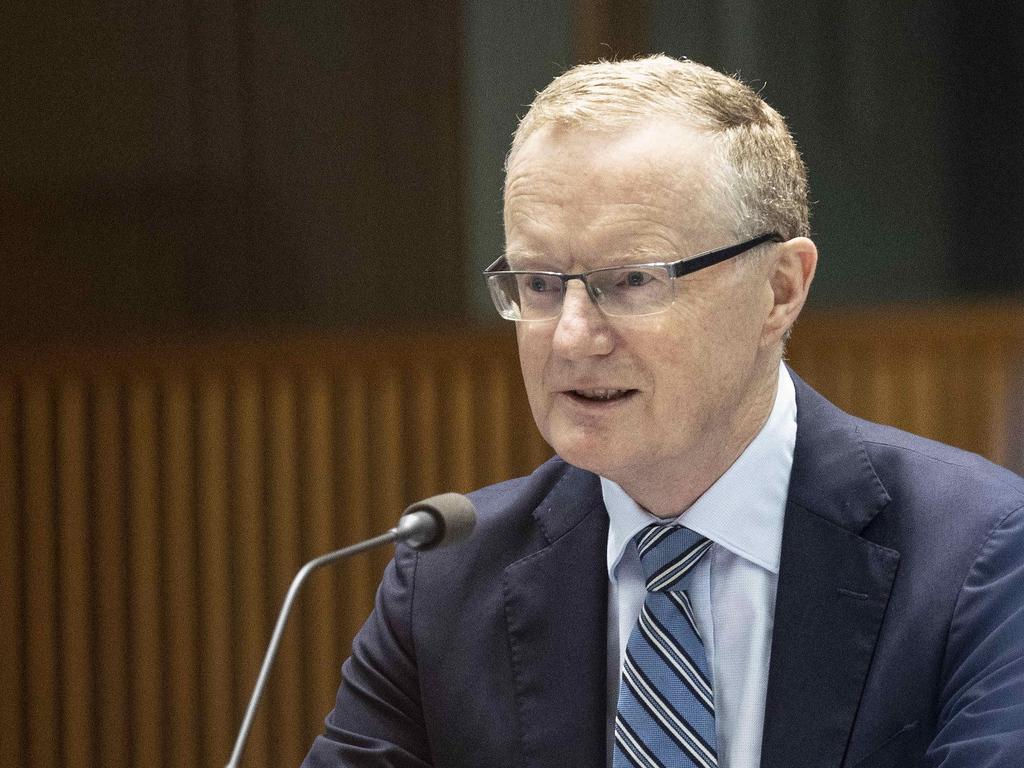Quicker tax cuts off for wealthy as budget targets middle
Government to instead provide relief for low, middle-income earners plus skills, jobs package.

The fast-tracking of tax cuts for high-income workers has been ruled out of next week’s budget in favour of extended relief for low and middle-income earners and a major skills and jobs package to shift the focus on getting long-term unemployed back into work.
The Morrison government has also dropped plans to boost or retrofit the $4bn JobMaker hiring credits program, a centrepiece of last year’s budget, following an employment bounce back and low take-up.
Savings accrued from pandemic stimulus schemes because of a faster than expected economic recovery — which could reduce the budget deficit by as much as $40bn — will be used to fund a major services package for aged care, mental health, the National Disability Insurance Scheme, childcare and veterans.
Next week’s budget is expected to show that JobKeeper will cost about $88.8bn, a marked reduction on the $101.3bn forecast in October given there were, on average, 1.1 million individuals on the payment in the March quarter as opposed to the 1.75 million previously expected.
The Australian understands the flagship budget announcement of root-and-branch aged-care sector reform will focus on record investment in boosting the workforce to build the sustainability of residential care to help ease the burden on home care.
While further home-care packages will be included, the government will focus on expanding the nursing workforce to deliver them while ensuring private providers keep operating in residential care.
The government has already ruled out a recommendation from the Royal Commission into Aged Care Quality and Safety to impose a levy to fund the reforms.
Under Scott Morrison’s push to improve economic security for women, the budget will also include a superannuation package boosting the retirement savings of female workers.
Long-term unemployed will be targeted through a skills and training package designed to train them for high-demand jobs.
The Prime Minister said last month Stuart Robert was working to finalise a new employment services model “better tailored to the needs of jobseekers”. Almost 1.3 million Australians still relied on JobSeeker and Youth Allowance (other) at the end of March.
Senior sources said that, despite speculation, the government would not be bringing forward the third stage of the government’s personal income tax cuts, which deliver greater relief to higher income earners and remain due for introduction in 2024. The temporary low and middle income tax offset — worth up to $1080 — is expected to be extended for a further year.
With the budget heavily focused on regional Australia and infrastructure projects ahead of the next election, Deputy Prime Minister Michael McCormack on Wednesday will announce a $250m boost for the Building Better Regions Fund. Speaking at Beef Week in Rockhampton, the Nationals leader will also unveil $22.3m in additional funding for water infrastructure.
“Whether it was through the tens of thousands of workers in the resources sector, or indeed the farmers in our agriculture industry who drove the value of agriculture in this country from a $60bn enterprise to a $66bn enterprise, it was the regions that kept the country going,” he will say.
The government on Wednesday will also announce a $600m National Recovery and Resilience Agency to co-ordinate its response to natural disasters, and a $100m boost for hydrogen plants.
Westpac chief economist Bill Evans on Tuesday forecast the 2020-21 deficit would be $155bn, down from the $197.7bn estimated in the December mid-year economic and fiscal outlook.
On the back of faster improvement in the labour market and household spending, and commodity prices holding up, Westpac expects the deficit in 2021-22, including $20bn of policy initiatives, to shrink to $84bn. “Over the whole budget period out to 2024-25 we expect the underlying fiscal position will have improved from deficits totalling $511.6bn in MYEFO to $400bn, including an estimated $62bn in new policy measures,” Mr Evans said.
He said by extending the Low and Middle Income Tax Offset for a third year, the government was “missing the opportunity to bring forward tax reform”.
In a speech on Tuesday night, Labor Treasury spokesman Jim Chalmers said the government must “fix the hiring credit to make it easier for employers to use and do more to incentivise the hiring, not firing, of over 35s”.
Dr Chalmers called on the government to “ensure a gender lens has been applied before making announcements” and said targeted support must be provided for hard-hit sectors and regions.
“Just as its last budget estimated that a faster rollout could boost economic activity by $34bn, they need to come clean on the cost and risk of delay,” he said.
Government sources said with a stronger than expected labour market and extended government supports, the budget would focus on ensuring savings built up during the pandemic were spent.
But uncertainty in relation to the COVID-19 outbreak in India is expected to impact Treasury’s assumptions around the resumption of international travel.







To join the conversation, please log in. Don't have an account? Register
Join the conversation, you are commenting as Logout